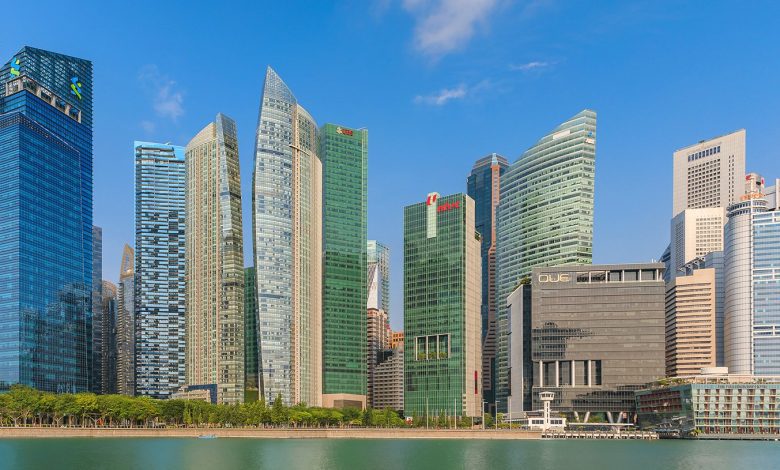Multinational Corporations (MNCs) in Singapore: A Strategic Hub in Asia

Singapore has long been recognized as a prime location for multinational corporations (MNCs) seeking to establish a strong foothold in Asia. Its strategic location, robust infrastructure, business-friendly environment, and skilled workforce have made it an attractive destination for MNCs from a wide range of industries. This article explores the reasons why Singapore is a preferred hub for MNCs, the sectors where they are most active, and the impact of their presence on the local economy.
1. Why Singapore Attracts MNCs
Strategic Geographic Location:
- Singapore’s location at the crossroads of major global trade routes makes it a natural gateway to Asia. This strategic positioning allows MNCs to easily access and serve key markets in Southeast Asia, China, India, and beyond. The city-state’s world-class port and Changi Airport, both among the busiest in the world, provide unparalleled connectivity for goods and people.
Pro-Business Environment:
- Singapore consistently ranks among the top countries globally in terms of ease of doing business. The government offers a stable and transparent regulatory environment, low corporate tax rates, and a range of incentives for businesses, including grants, tax breaks, and funding for innovation. These factors make Singapore an attractive location for MNCs looking to establish regional headquarters or significant operational bases.
Political Stability and Strong Governance:
- Singapore is known for its political stability and strong governance, providing a secure environment for businesses to operate. The government’s long-term economic planning, coupled with its commitment to the rule of law, offers MNCs the predictability they need to make significant investments.
Skilled and Multilingual Workforce:
- Singapore’s workforce is highly educated, skilled, and multilingual, with proficiency in English, Mandarin, Malay, and Tamil. The country’s education system emphasizes STEM (Science, Technology, Engineering, and Mathematics) disciplines, ensuring a steady supply of talent for high-tech and knowledge-intensive industries. Moreover, the government’s focus on lifelong learning and skills development ensures that the workforce remains competitive and adaptable.
Advanced Infrastructure:
- Singapore boasts world-class infrastructure, including state-of-the-art telecommunications networks, efficient public transportation, and a high standard of living. These factors make it an attractive destination for expatriates and ensure that MNCs have the facilities they need to operate efficiently.
2. Key Sectors for MNCs in Singapore
Financial Services:
- Singapore is a leading global financial hub, with many of the world’s top financial institutions, including banks, asset management firms, and insurance companies, having a significant presence in the city-state. The Monetary Authority of Singapore (MAS) provides a robust regulatory framework that supports innovation in fintech, digital banking, and financial services, attracting MNCs looking to tap into the growing Asian market.
Technology and Digital Innovation:
- Singapore has emerged as a leading technology hub in Asia, attracting tech giants such as Google, Facebook, Amazon, and Alibaba. The government’s Smart Nation initiative and strong support for digital innovation have created a conducive environment for tech companies to develop and deploy cutting-edge solutions in areas such as AI, cybersecurity, and fintech.
Manufacturing and Electronics:
- Singapore has a well-established manufacturing sector, particularly in electronics, semiconductors, and precision engineering. Companies like Intel, Micron, and Infineon have major operations in Singapore, leveraging the country’s skilled workforce, advanced infrastructure, and proximity to suppliers in Asia. The government’s focus on Industry 4.0 and advanced manufacturing technologies further strengthens Singapore’s position as a manufacturing hub.
Biomedical and Life Sciences:
- The biomedical and life sciences sector is another area where Singapore has attracted significant investment from MNCs. Companies like Pfizer, Roche, and GlaxoSmithKline have established research, manufacturing, and regional headquarters in Singapore. The city-state’s robust regulatory environment, coupled with strong intellectual property protection and world-class research institutions, makes it an ideal location for companies in this sector.
Logistics and Supply Chain Management:
- Singapore’s strategic location and world-class logistics infrastructure make it a key hub for supply chain management in Asia. Companies like DHL, FedEx, and UPS have major operations in Singapore, leveraging its connectivity and efficiency to manage complex regional and global supply chains. The presence of the world’s busiest transshipment port and a top-ranked airport further enhances Singapore’s attractiveness for logistics MNCs.
3. Impact of MNCs on Singapore’s Economy
Economic Contribution:
- MNCs play a significant role in Singapore’s economy, contributing to GDP, employment, and foreign direct investment (FDI). They are a major source of tax revenue and often bring in advanced technologies and management practices that enhance productivity across sectors.
Job Creation and Skills Development:
- The presence of MNCs in Singapore creates thousands of jobs, both directly and indirectly. These companies often require highly skilled professionals, which drives demand for talent in areas such as finance, technology, engineering, and life sciences. The competition for skilled workers also encourages continuous skills development and training, benefiting the broader workforce.
Innovation and R&D:
- Many MNCs establish research and development (R&D) centers in Singapore, contributing to the country’s innovation ecosystem. These centers often collaborate with local universities and research institutions, fostering a culture of innovation and helping Singapore stay at the forefront of technological advancements. The presence of R&D activities also leads to the development of new products and services, further enhancing Singapore’s competitiveness.
Spillover Effects on Local Businesses:
- MNCs often collaborate with local companies, creating opportunities for knowledge transfer, partnerships, and the integration of local firms into global supply chains. This collaboration helps local businesses grow and become more competitive on the international stage. Additionally, the presence of MNCs stimulates demand for a wide range of services, including legal, accounting, marketing, and logistics, benefiting the broader economy.
4. Challenges and Future Outlook
Rising Costs:
- One of the challenges facing MNCs in Singapore is the rising cost of doing business, particularly in terms of labor, real estate, and operational expenses. While Singapore offers a highly efficient and stable environment, the high cost of living and doing business may deter some companies from expanding their operations.
Competition from Regional Hubs:
- Singapore faces increasing competition from other regional hubs such as Hong Kong, Shanghai, and Tokyo. These cities offer similar advantages in terms of connectivity, talent, and infrastructure, which means Singapore must continually innovate and adapt to maintain its competitive edge.
Focus on Sustainability and Green Initiatives:
- As global attention shifts toward sustainability, MNCs in Singapore are increasingly focused on incorporating environmental, social, and governance (ESG) criteria into their operations. Singapore’s government supports these efforts through various initiatives aimed at promoting green technologies, sustainable finance, and energy efficiency. MNCs that prioritize sustainability will find Singapore a supportive environment for their green initiatives.
Continued Government Support:
- The Singaporean government remains committed to attracting and retaining MNCs. Continued investment in infrastructure, education, and innovation, as well as ongoing efforts to enhance the business environment, will ensure that Singapore remains an attractive hub for MNCs in the years to come.
Conclusion
Singapore’s position as a strategic hub for multinational corporations is the result of a unique combination of geographic advantage, a pro-business environment, political stability, and a skilled workforce. The presence of MNCs across key sectors such as finance, technology, manufacturing, and life sciences has had a profound impact on the local economy, driving innovation, job creation, and economic growth. As Singapore continues to evolve and adapt to global trends, it will remain a key destination for MNCs looking to tap into the dynamic Asian market. The city-state’s focus on sustainability, innovation, and competitiveness will ensure that it remains at the forefront of global business in the years to come.






